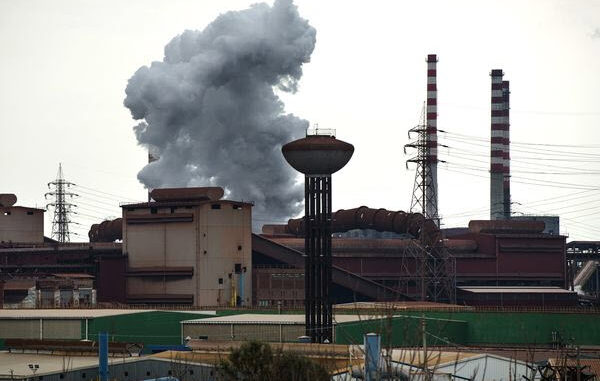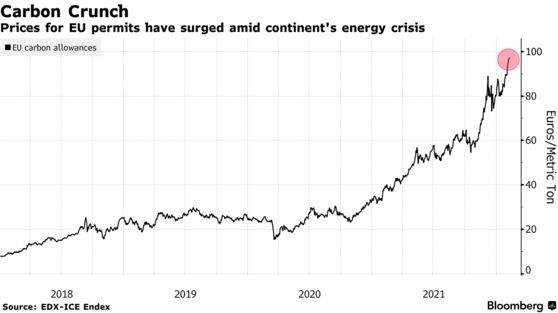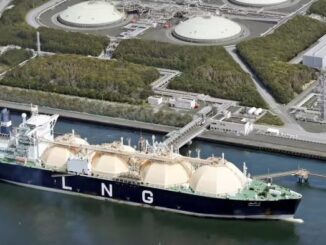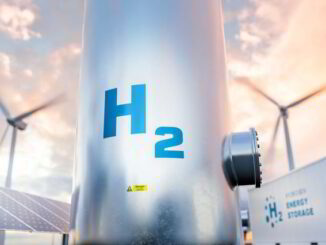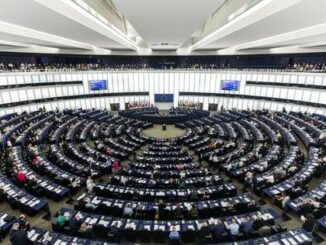Liese, a German Christian Democrat, said the price of emissions is driven mainly by ambitious climate policies in the European Green Deal and an unprecedented energy crisis, which has caused natural gas prices to skyrocket amid a supply crunch. He said the existing mechanism that allows the EU to act in the event of price spikes needs improvement after “quite dramatic” recent gains failed to trigger it.
“Maybe we need to sharpen it to provide more predictability against price shocks,” Liese told reporters during a briefing. “It’s important to start a debate, to find a good solution and then to implement it.”
The emissions trading system is the bloc’s key tool for meeting a tougher climate goal for 2030 and, eventually, the Green Deal target of climate neutrality by 2050. Started in 2005, the ETS imposes shrinking caps on emissions from almost 12,000 installations owned by manufacturers, power producers and airlines. Most permits are sold at government auctions and a share is given to some emitters for free.
Carbon contracts for delivery in December traded 3.4% lower at 93.60 euros per metric ton by 4:16 p.m. Brussels time, after falling to as low as 93.26 euros earlier.
The European Commission, which oversees the functioning of the market, has no central bank-like tools to intervene, and it sticks to its policy of not commenting on prices. The current provision to prevent excessive price growth, including in Article 29a of the emissions trading law, is ambiguous and has never been used. The Commission has consistently declined to comment on how exactly it calculates the potential triggers.
The mechanism mandates that the Commission call a meeting of national government representatives if, for more than six consecutive months, the price of carbon is more than three times the average price during the two preceding years. In such a situation, provided that the price growth isn’t justified by market fundamentals, member states may decide to auction more allowances to add to the supply of permits and help lower prices.
Liese didn’t provide additional details for his proposal, which he plans to issue by Feb. 16. It would need majority support in the parliament and a weighted majority backing from member states to be approved.
In a separate effort, he wants to ask the Commission to propose a new measure to increase transparency in the emissions-trading system. It would come after a full report by the European Securities and Markets Authority on emissions-trading behavior, which is expected around April. In its preliminary findings in November, the regulator found no evidence of abuse in the European carbon market.
(Updates with carbon prices in second and seventh paragraphs.)
Source: Bloomberg Green
